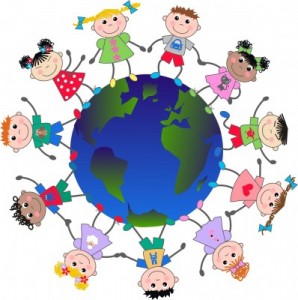 I always thought I knew what equality was.
I always thought I knew what equality was.
Americans believe in equality. We don’t like to think of ourselves as snobs. We try not to judge a person’s worth by their fame or income level or what they look like. We try to treat all people with a certain degree of respect. So when we moved to New Zealand, where equality is very important, I felt we fit in and understood. Years later, however, I learned that the New Zealander (Kiwi) idea of equality was slightly different.
Tall Poppy Syndrome
“Tall Poppy Syndrome” is a label used in New Zealand and Australia to describe their aversion to people who “get above themselves.” They are friendly to almost anyone, but eye with suspicion the “tall poppy” who grows higher than the rest. Kiwis and Aussies rarely celebrate success and don’t generally aspire to build wildly successful careers. Sports is the exception to the rule. Everyone loves the All-Blacks, the nation’s rugby team. Compared to many other cultures, however, education is not highly valued. New Zealand is, as a result, always short of doctors, but they have plenty of tradesmen.
Kiwis will tolerate a certain amount of success if the successful person lives in an average house, drives an average vehicle, and is like everyone else. Anything that could hint at being flashy or pretentious will not impress the average Kiwi, but will have the opposite effect.
Equality and Leadership
Understanding the Kiwi concept of equality becomes important in a leadership position. Titles are rarely used. Even kids often call doctors and pastors by their first names. While Americans use titles as a sign of respect, expecting it in New Zealand often signals superiority.
Some cultures weigh a pastor’s advice very heavily and nearly always follow it. In an egalitarian culture like New Zealand, however, a pastor or leader has to tread much more carefully when giving advice or correction or he will risk offense.
Formality and Leadership
Kiwis like to keep most things casual. Formality often comes across as unfriendly. Formality often emphasizes a central figure standing up front, leading things. Casualness emphasizes everyone in the group, because individuals can speak out quite freely.
People sitting in a circle drinking tea is friendly. Casual dress, informal settings, unstructured meetings are friendly too. Having tea and biscuits (cookies) makes anything seem more friendly.
On the other hand, anything highly structured or planned can seem unfriendly. Rules, punctuality, formal dress, evaluation, one speaker talking without comments from the audience; all these can easily come across in an unfriendly manner. Meetings are often much more casual than the American counterparts. While Americans may be uncomfortable with such a degree of casualness, it makes the meeting seem friendly to Kiwis. And friendliness is the brother of equality.



